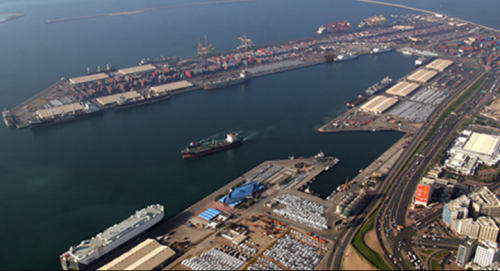The Persian Gulf’s bunkering hub of Fujairah will conduct random checks in 2020 on ships taking bunker fuel at the port to make sure they comply with the International Maritime Organization’s lower sulfur mandate for marine fuels, the port’s general manager Captain Mousa Murad told S&P Global Platts last week.
The port, together with the UAE’s Federal Transport Authority, will conduct random checks, which is expected to test the samples obtained from these checks, Mourad said. Officials from the FTA were not available to comment on the test methods to be employed.
“We will do random checks. We cannot check 14,000 or 15,000 ships that call on the port in a year,” he said. “We will not allow non-compliant ships to enter the port.”
The IMO 2020 mandate that kick starts on January 1 will cap the sulfur content in marine fuels to 0.5% from the current 3.5%. Ships are also allowed to use other compliant fuels such as marine gasoil or install scrubbers to continue to use high sulfur fuel oil.
“The only way to know what a ship has in its tanks is to test and our understanding is that capability to test is quite limited outside Europe, North America, Singapore and China,” Alan Gelder, VP for Refining, Chemicals & Oil markets at Wood Mackenzie.
“We are fairly convinced we will not get 100% compliance in 2020 [globally] because there are a lot of things happening.”
The port has dedicated pipelines and at least three berths to load low sulfur fuel oil, Mourad said.
“There are available facilities for loading LSFO,” he said. “Problems will only surface later if there is demand for more dedicated berths, and if there is a waiting time.”
The port has banned the use of open loop scrubbers, joining countries like the US, Singapore and several members within the European Union, who had done the same.
“We expect most of the compliance to come from shippers using low sulfur fuels [Very Low Sulfur Fuel Oil or marine gasoil, rather than scrubbers] when looking at it on the basis of individual ships,” Gelder said.
“We do not expect enforcement to be rigorous initially. There will be a very wide difference in fuel prices between HSFO and compliant fuels so there will be an economic incentive to cheat.”
Currently, two refineries at Fujairah Port can produce LSFO and a third will be up and running in the first quarter of next year.
Vitol’s refinery has a processing capacity of up to 82,000 b/d, while Uniper’s facility, according to information on its website, has the capacity to process 67,000 b/d of crude and able to produce about3.6 million mt/year of marine fuels with sulfur content as low as 0.1%.
UAE-based Brooge Petroleum and Gas Investment Company is building a 24,000 b/d refinery that will produce mainly LSFO in the first quarter of 2020.
“Within Fujairah you have the likes of Uniper and Vitol processing very low sulfur crude and to make VLSFO,” Steve Sawyer, director of refining at consultancy FGE said.
“They are in a very good position and then it’s a question of whether it is going to be sold to Fujairah. They may export it to other places.”
Fujairah’s bunkering business was hurt in 2019 following a series of incidents targeting ships in the port or near the Strait of Hormuz, a strategic waterway that overlooks the UAE emirate.
Currently, ships passing through the region have to pay a risk premium that has hiked shippers’ costs, Mourad said, adding that these shippers are still calling at the port, but spending less time there.
Nevertheless, the number of ships calling on the port is expected to remain steady next year, ranging between 14,000 to 15,000, Mourad said.
“As long as the price is right and the risk of going into the area is manageable, Fujairah will continue to act as a significant bunker port,” Sawyer said.
Source: Platts
